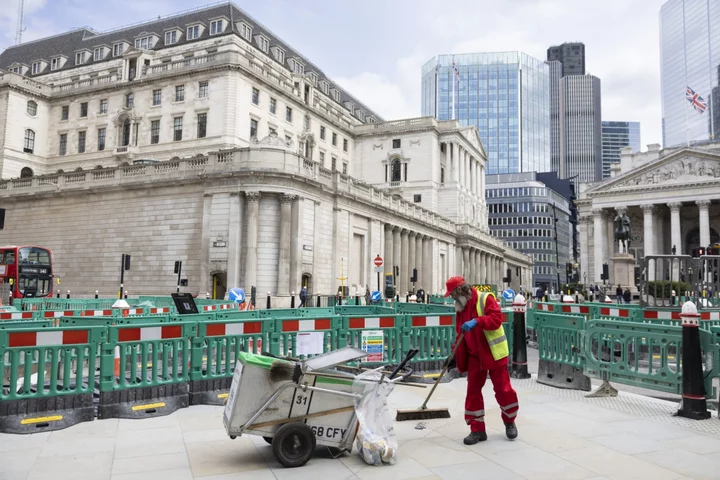UK inflation is running so high that the government is considering blocking pay rises for millions of public workers amid concern they could push prices higher, the Times reported.
Prime Minister Rishi Sunak is ready to overrule the recommendations of independent pay review bodies to avoid fueling a “wage-price spiral,” the Times said. The bodies are advocating that teachers get a 6.5% rise for 2023-24, while police officers, prison officers and junior doctors should all receive an increase of 6% or more. That will cost the government in excess of £5 billion ($6.4 billion), the newspaper said.
Inflation in the UK is coming down at a slower pace than in other developed countries, despite the Bank of England’s most aggressive rate-hike campaign in over two decades. On June 22, the central bank raised rates to their highest level since 2008, after inflation proved stickier than expected, and further rate hikes are on the cards according to market forecasts.
Read more: Stubborn UK Inflation Triggers a Mortgage Crisis for Millions (2)
Blocking pay rises would risk further antagonizing unions with the public sector plagued by several strikes over the past year, disrupting the National Health Service and public transport. Junior doctors plan a five-day walkout next month in their longest ever industrial action.
The government has gone against the advice of the independent bodies just four times in the past decade, the Times said.
To ease the cost-of-living crisis faced by millions, the UK has announced measures to help homeowners deal with soaring mortgage bills. On Friday, Chancellor of the Exchequer Jeremy Hunt and the UK’s largest lenders have agreed people should get a 12-month grace period if they miss mortgage payments, while also giving customers the ability to switch to an interest-only loan or extend their terms without penalty for set periods.
Other measures are in the works to keep the burden on households in check. Energy Security Secretary Grant Shapps said households will be spared a levy on their energy bills to fund the hydrogen industry as he favors other ways of raising funds for the government’s Net Zero drive, the Telegraph reported, citing an interview with the minister.
While the government is looking at support for the hydrogen sector, Shapps doesn’t want to follow the same method as was used for renewable energy when the cost was applied directly to energy bills. The cost to each household has been estimated at about £118 per year.

